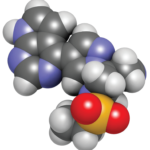References
- Risser L, Witte T. Bartz-Bazanella P, et al. Persistence on JAK inhibitors in daily practice: Evaluation of the Rhadar-registry [abstract 0841]. Arthritis Rheumatol. 2021 Oct;73(suppl 10).
- Kleinert S, Bartz-Bazzanella P, von der Decken C, et al. A real-world rheumatology registry and research consortium: The German RheumaDatenRhePort (RHADAR) Registry. J Med Internet Res. 2021 May 20;23(5):e28164.
- Rheumatoid arthritis: Causes, symptoms, treatments and more. Arthritis Foundation. 2021 Oct 15.
ad goes here:advert-1
ADVERTISEMENT
SCROLL TO CONTINUE


